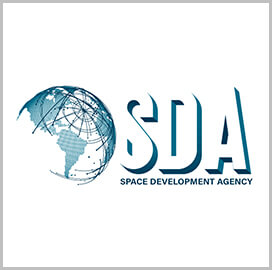
Quantum technology
NASA to Test Space-Based Quantum Communications Capability
NASA will send two pieces of technology to the International Space Station to test the ability of quantum computers to communicate with each other regardless of their location.
The Space Entanglement and Annealing QUantum Experiment will involve small quantum communication technologies that will be subject to harsh space conditions. Officials want to prove the concept of orbiting space nodes that would allow quantum transmitters and receivers to connect with each other over great distances.
SEAQUE will determine if the nodes will be able to produce and detect pairs of entangled photons and transmit those to ground-based quantum computers. The result could become the foundation for quantum cloud computing, which is the ability to process and exchange quantum data from anywhere, NASA’s Jet Propulsion Laboratory said.
SEAQUE will use a waveguide to generate its own entangled photons. A waveguide is a structure that directs entangled photon transmission while minimizing the quantum state.
SEAQUE will split the entangled photon sources into “daughter” photons that would be measured by the instrument’s internal detectors.
Another aspect that will be tested is the hardware’s ability to regenerate from radiation damage. Radiation could cause defects over time and create quantum data defects known as dark counts. Dark counts create noise that will eventually overwhelm quantum signals from the ground. Without an ability to self-heal, it could lead to more frequent replacement of quantum detectors and impede the viability of a global quantum communications network.
For the self-healing capability, SEAQUE will use its detector array to count photons generated by its entanglement source. It will then use a bright laser to repair damage caused by radiation should it spot anomalies with the array count.
SEAQUE is a collaboration between scientists and students from JPL; the University of Illinois-Urbana Champaign; the University of Waterloo in Ontario, Canada; the National University of Singapore; and U.S. companies AdvR and Nanoracks.

Category: Space




